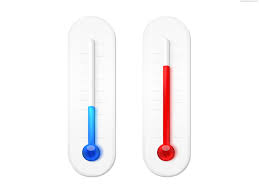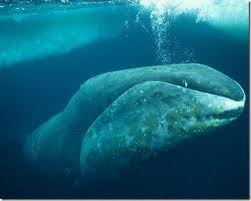|
|
|
|
|
|
|
|
Today's Congressional Action:
The House and Senate are not in session.
|
Media
 NWS Issues Winter Outlook for 2016-2017, Coolest Air of Autumn Has Arrived. NWS Issues Winter Outlook for 2016-2017, Coolest Air of Autumn Has Arrived. From September (summer) to November (fall) in one day! The cool off is a sharp one as persistent cloud cover and showers linger late into the afternoon Thursday. After 76° high temperature Wednesday, Thursday became the coolest afternoon of the fall, holding steady in the mid to upper 50s. Thursday was the coolest afternoon since mid May but a little more typical for October. It was has been anything but a typical October! An afternoon this cool is way behind schedule, noting the average date of the first sub 60° day comes September 30. Fox59
Whale Sanctuary Row Exposes a Kingdom Divided. When the International Whaling Commission, currently meeting in Slovenia, votes next week on a proposal to establish a sanctuary in the south Atlantic Ocean, Denmark, by all accounts, will cast its ballot in favor. Doing so will put it in line with other European states, and say representatives from Greenland and the Faroe Islands, prove once and for all that Copenhagen cannot adequately represent their interests when it comes to whaling. As non-states, Greenland and the Faroe Islands, where whales continue to be hunted, must be represented at the IWC under the Danish flag. In the past, this has in the past led to allegations of half-hearted efforts on behalf of Copenhagen in order to protect the whaling rights of the two countries. The Arctic Journal
Arctic Indigenous Leaders to Push for Permanent Voice in World Maritime Body. A coalition of environmental groups is calling for a permanent voice for Arctic Indigenous communities at the world body that regulates the global maritime industry. Six Arctic Indigenous leaders from Alaska, Canada, and Russia are expected to travel to London next week to address the International Maritime Organization (IMO) regarding the impacts of shipping on food security in the Arctic Indigenous communities, said Andrew Dumbrille, senior specialist in sustainable shipping at WWF Canada. Radio Canada International
 Aerial Drone Offers Insights into Bowhead Whale Behavior. Aerial Drone Offers Insights into Bowhead Whale Behavior. The bowhead whale is the longest-living marine mammal in the world, yet many answers remain about the biology and feeding behavior of this elusive animal. Recently, a research team undertook what is believed to be the first intensive effort to study bowhead whales with the use of an aerial drone in the Eastern Canadian Arctic. Using drone technology, the team captured rare high-quality images and videos of Eastern Canada-West Greenland bowhead whales during their summer feeding period in Cumberland Sound, Nunavut (just a few kilometers shy of the Arctic Circle). The University of British Columbia
|
Legislative Action.gif)
No Arctic legislation was formally considered yesterday.
|
|
Future Events
** New this week** Promoting Urban Sustainability in the Arctic: Public Event, October 21, 2016, Washington, DC. The George Washington University Dept. of Geography, IERES, and the Sustainability Collaborative present Partnerships for Int'l Research and Education (PIRE) "Promoting Urban Sustainability in the Arctic: Public Event" and reception to follow. A panel discussion, from 4:00 to 5:00 pm on the GW campus, on social sustainability in Arctic conditions, the economic role of cities, Arctic urban planning, and the political framing of sustainability in the Arctic. More info here.
Arctic Technology Conference, October 24-26, 2016 (St. John's, Canada). Founded in 1969, the Offshore Technology Conference (OTC) is the world's foremost event for the development of offshore resources in the fields of drilling, exploration, production and environmental protection. The Arctic Technology Conference (ATC) is built upon OTC's successful multidisciplinary approach, with 14 technical societies and organizations working together to deliver the world's most comprehensive Arctic event.
** New this week ** Geopolitics, Security and Energy in the Arctic. October 25, 2016 (Washington, DC USA). While commercial, environmental, and local community development aspects of the Arctic have received increasing attention in Washington in recent times, the US also faces growing national security challenges in the Arctic region. This is a worrying development, as the United States risks not being able to appropriately respond and posture for a rapidly changing security situation in the Arctic. The Atlantic Council will host this event to consider these challenges.
Fulbright Arctic Week. October 25-27 (Washington, DC) The 18-month Fulbright Arctic Initiative supports U.S. priorities on Arctic issues and increasing mutual understanding between Americans and those in other countries. As a culmination of the program, 17 scholars will be presenting their work at public events. Other invited speakers will include officials from the Inuit Circumpolar Council, Arctic Executive Steering Committee, and U.S. Arctic Youth Ambassadors, among other. For more information, please visit the Fulbright Arctic Week website and/or register your interest for updates.
October 25, 2-5:30pm - Smithsonian Natural History Museum
October 26, 2-5pm - Arctic Policy Dialogue at the Carnegie Endowment for International Peace
October 27, 9am-4:30pm - Fulbright Arctic Symposium at the National Academy of Sciences (Constitution Ave. location)
ARCUS Arctic Research Seminar Series with George Divoky, October 26, 2016 (Washington, DC USA). The Arctic Research Consortium of the US (ARCUS) is pleased to announce the Arctic Research Seminar Series event "Years of Change: a seabird responds to a melting Arctic." The ARCUS Arctic Research Seminar Series brings some of the leading Arctic researchers to Washington, DC to share the latest findings and what they mean for decision-making. These seminars will be interest to Federal agency officials, Congressional staff, NGOs, associations, and the public.
Towing Safety Advisory Committee, October 2016 Meeting, October 26-27, 2016 (Washington, DC USA). The Towing Safety Advisory Committee will meet in Washington, DC, to review and discuss recommendations from its Subcommittees and to receive briefs. This committee is established in accordance with, and operates under the provisions of, the Federal Advisory Committee Act. As stated in 33 U.S.C. 1231a, the Towing Safety Advisory Committee provides advice and recommendations to the Department of Homeland Security on matters relating to shallow-draft inland and coastal waterway navigation and towing safety.
1st International Muskox Health Ecology Symposium, November 7-10, 2016 (Calgary, AB Canada). The goal of this symposium is to share knowledge on muskox health ecology and sustainability across a variety of international stakeholders including community members/users, industry, wildlife management, and academia. We will discuss: the values, ecological, economic, social and cultural, of muskoxen; population status and trends; threats, vulnerabilities and resilience or sustainability; knowledge gaps; disease ecology; and existing and new tools for muskox health monitoring and research. For more information, please contact Susan Kutz.
ArcticNet annual Scientific Meeting 2016, December 5-9, 2016 (Winnipeg, MP Canada). ArcticNet will host its 12th Annual Scientific Meeting. The ASM2016 will welcome researchers, students, Inuit, Northerners, policy makers and stakeholders to address the numerous environmental, social, economical and political challenges and opportunities that are emerging from climate change and modernization in the Arctic. As the largest annual Arctic research gathering held in Canada, ArcticNet's ASM is the ideal venue to showcase results from all fields of Arctic research, stimulate discussion and foster collaborations among those with a vested interest in the Arctic and its peoples.
** New this week ** American Geophysical Union Fall Meeting, December 12-16, 2016 (San Francisco, CA USA). Anticipating about 25,000 attendees, AGU's Fall Meeting will again be the largest Earth and space science meeting in the world. 2016 marks the meeting's 49th year and there will be approximately 20,000 oral and poster presentations in over 1,700 sessions, many of which will focus specifically on Arctic science. Among the highlights, the "2016 Arctic Report" will again be released, IARPC will hold a "Town Hall Meeting" on Thursday, Dec. 15th, from 12:30 to 1:30 pm in Moscone West Room 2003, and NASA will have a Town Hall on Operation IceBridge on Dec. 14th, in Moscone Room 202 from 12:30 to 1:30 pm.
** New this week ** Alaska Marine Science Symposium, January 23-27, 2017 (Anchorage, AK USA). The annual Alaska Marine Science Symposium (AMSS) is Alaska's premier marine research conference. It brings together roughly 800 scientists, educators, resource managers, students, and interested public to discuss marine research being conducted in Alaskan waters. Research will be presented by geographic theme, including the Gulf of Alaska, Bering Sea & Aleutian Islands, and the Arctic. Topic areas will include ocean physics, fishes and invertebrates, seabirds, marine mammals, local traditional knowledge and more. Keynote presentations will be held Monday, January 23rd; Gulf of Alaska presentations will be on Tuesday, Bering Sea/Aleutian Islands on Wednesday, followed by the Arctic on Thursday.
** New this week ** IV International Forum, March 2017 (Arkhangelsk, Russian Federation) Arkhangelsk will host the Forum. The Forum will be titled Human in the Arctic and will be aimed at putting together joint efforts of the international community to promote effective development of the Arctic region as a territory for comfort life, work and leisure. The Forum will be attended by government officials, representatives of international organizations and prominent business communities, centers for political studies, Polar researchers and members of the international Arctic expeditions, foreign political scientists and economists, Russian and foreign journalists from leading international media organizations. The Forum will be attended by the President of the Russian Federation, Mr. Vladimir Putin. Additional information will be announced here.
** New this week** The Arctic Science Summit Week, March 31- April 7, 2017 (Prague, Czech Republic). This event is sponsored by the University of South Bohemia in Cecke Budejovice, the Faculty of Science, and the Center for Polar Ecology of the Czech Republic. The Science Symposium will address the three sub-themes: changes in the Arctic, global implications of Arctic changes, and images of global change on the Arctic.
** New this week ** Ninth International Congress of Arctic Social Sciences: People and Places (ICASS IX), June 8-12, 2017 (Umeå, Sweden).ICASS IX's theme is People & Place. Research on social sciences and humanities have a great responsibility to address the challenges for sustainable development in the Arctic, with a specific focus on the many different parts of the Arctic and the people that live there. The multiple Arctics have lately been addressed by many policy makers and researchers. The purpose is often to counteract the stereotypic understanding of the Arctic too often represented by icebergs and polar bears. A focus on people and place highlights the many variances across the region in terms of climate, political systems, demography, infrastructure, history, languages, legal systems, land and water resources etc. etc.
POLAR 2018, June 15-27, 2018 (Davos, Switzerland). POLAR2018 is a joint event from the Scientific Committee on Antarctic Research (SCAR) and the International Arctic Science Committee (IASC). The SCAR meetings, the ASSW and the Open Science Conference will be hosted by the Swiss Federal Institute for Forest, Snow and Landscape Research WSL under the patronage of the Swiss Committee on Polar and High Altitude Research. The WSL Institute for Snow and Avalanche Research SLF is organizing POLAR2018.
|
|

  
4350 N. Fairfax Drive, Suite 510
Arlington, VA 22203, USA
External links in this publication, and on the USARC's World Wide Web site ( www.arctic.gov) do not constitute endorsement by the US Arctic Research Commission of external Web sites or the information, products or services contained therein. For other than authorized activities, the USARC does not exercise any editorial control over the information you may find at these locations. These links are provided consistent with the stated purpose of this newsletter and the USARC Web site.
|
|
|
|
|
|
|
|
|